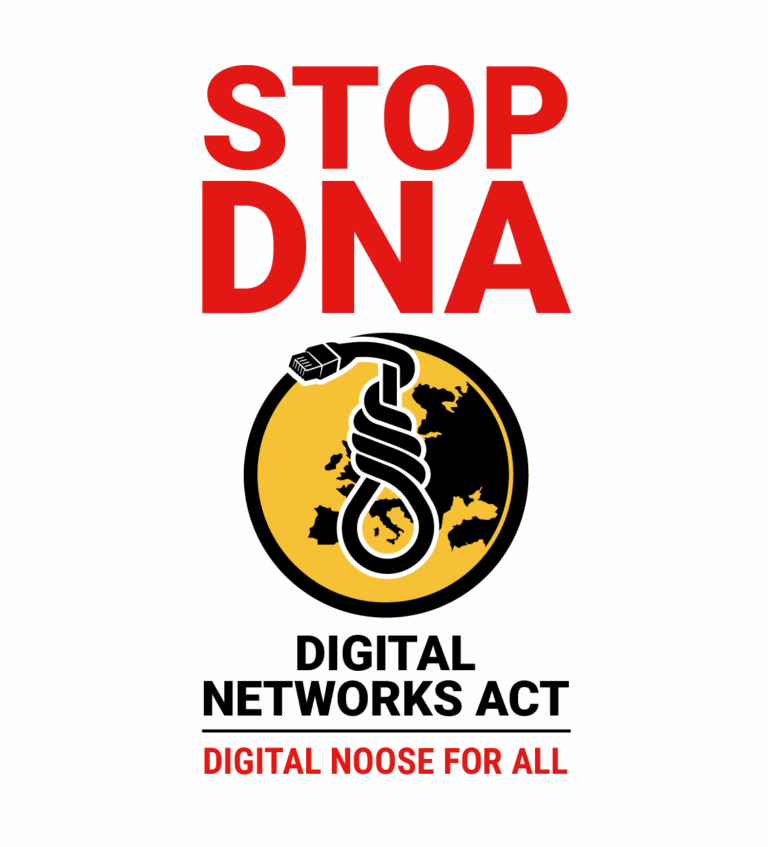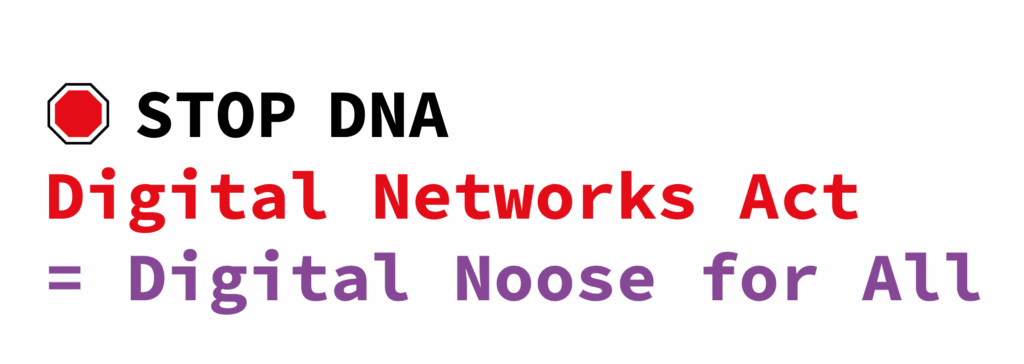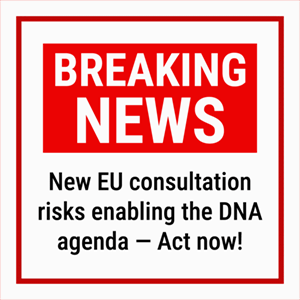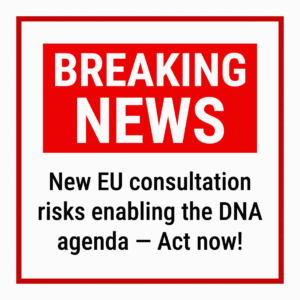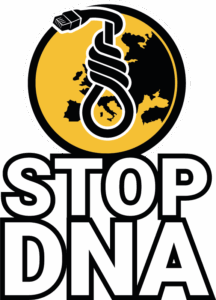BREAKING NEWS
22 January 2026
DIGITAL NETWORKS ACT: WEAKENING COMPETITION LEADS TO HIGHER PRICES AND THE DELIVERY OF EUROPEAN NETWORKS TO A FEW OLIGOPOLISTS
Associazione Italiana Internet Provider (AIIP) expresses deep concern about the Digital Networks Act (DNA), the new European regulation that rewrites the rulebook for electronic communications. Behind the rhetoric of “modernization” and “simplification,” the DNA—albeit toned down in relation to the most critical measures that had been envisaged—introduces a framework that reduces competition, weakens national authorities, and paves the way for an unprecedented consolidation of European digital infrastructure.
The original vision of the DNA spurred a dangerous paradigm shift: from open and regulated access, which enabled the development of fiber and a pluralistic ecosystem of operators, to a closed and selective model, in which those with capital, connections, and bargaining power decide who can be on the networks and under what conditions.
This paradigm shift is not neutral for citizens and businesses. The telecommunications sector is the only large European infrastructure market where, thanks to competition, there has been a steady increase in service quality and, at the same time, a significant reduction in end prices over the last 20 years. Dismantling competition inevitably means reversing this dynamic: less choice, less competitive pressure, and higher prices.
The Commission’s Regulatory Scrutiny Board, which had previously expressed a negative opinion on DNA, also continues to express reservations about uncertainties regarding key DNA assumptions when assessing impacts that are not sufficiently addressed and about the lack of clarity on what direct and indirect costs are and how they are distributed among stakeholder groups, the economic value of environmental impacts, administrative costs and possible savings.
Even regardless of the content, AIIP highlights the problematic nature of intervening with a new reform of the sector so soon after that brought about by the New European Electronic Communications Code (EECC, Directive (EU) 2018/1972). The EECC was transposed into Italian law in 2021 but its effective implementation took much longer. For example, the delicate issue of user rights involved complex regulatory activities that were only completed in early 2024. Introducing a new reform before the previous one has been effectively consolidated opens up new uncertainties in terms of interpretation and application, and is particularly dangerous for SMEs. Continuous adaptations to a changing regulatory environment entail significant fixed costs, which have a particularly heavy impact on SMEs, reducing their margins, investment capacity, and competitiveness.
THE CRITICAL POINTS OF DIGITAL NETWORKS ACT
- Allocation of 5G frequencies for potentially unlimited durations
Spectrum is a scarce resource with high strategic value, the management of which should continue to meet criteria of efficiency, competition, proportionality, European sovereignty, and periodic reassessment of public interest. Granting a public asset for an unlimited period of time, in addition to being inconsistent with established European principles, constitutes a substantial deprivation of that asset from citizens in favor of large mobile operators. This choice appears to be in line with the desire to allocate large portions of the 6 GHz spectrum to 5G, precluding its free use by citizens and businesses for their next-generation Wi-Fi networks and instead guaranteeing more space for paid services.
- Legal closed networks: wholesale access becomes optional
The Digital Networks Act paves the way for networks shared among a small number of selected operators, in which wholesale access is no longer a pillar of the system but a negotiable variable. Through ad hoc agreements, commitments, and corporate structures, dominant operators can reduce or neutralize access obligations, even in the presence of infrastructure that indirectly benefits from public resources. This marks the end of the idea of the network as a contestable asset: those who are in remain in, those who are out remain out.
- Symmetric access obligations transformed into theoretical exception
Access obligations, which for years have guaranteed competition and pluralism, are relegated to a residual measure, applicable only after complex, slow, and burdensome procedures. In practice, regulated access becomes an exception, while the rule returns to being the exclusive control of infrastructure by a few large operators. Small and medium-sized operators are gradually being expelled from the decision-making and industrial sphere.
The internet was born as a union of autonomous, distributed, and heterogeneous networks. Promoting large, closed, shared networks goes against the founding principles of the internet, increases systemic fragility, and reduces resilience. When a single network stops, everything stops.
- Copper switching off and top-down transition
DNA enables centralized and administrative management of the shutdown of legacy networks, reducing the role of competition and individual choice. The technological transition is transformed into a top-down planned process, where the end-user becomes a taxable person and alternative operators lose competitive leverage. The real risk is that of forced migrations to networks and conditions that are not truly contestable over time.
- Portability and freedom of choice: a step back
After twenty years of regulatory efforts to protect consumers, improve switching procedures, and ensure freedom to change operators, the Digital Networks Act introduces centralized rigidity that risks dismantling virtuous national practices. User freedom of choice risks being sacrificed for the sake of “efficiency” and network optimization, with a cultural setback that sets the sector back decades.
- National authorities stripped of power and politicized regulation
The DNA drastically reduces the autonomy of national regulatory authorities, transferring control of decision-making to the European Commission. Authorities are increasingly becoming advisory bodies, partly deprived of the ability to intervene in a timely manner and in line with specific local circumstances. Network regulation, once technical and independent, is becoming increasingly centralized and politicized.
- Takeover risk: the financial phase of the concentration
Once independent operators have been weakened or expelled, we can imagine a second financial phase. Large global groups and investment funds will be able to enter the capital of former European monopolists with the certainty of favorable rules and large markets, standardized by DNA and difficult to compete with. If this happens, prices will rise, quality will stagnate, and economic pluralism will be sacrificed. This will inevitably have an impact on freedom of expression and digital sovereignty.
The Digital Networks Act could therefore mark a point of no return: from infrastructure neutrality to an oligopolistic model, from regulated competition to selection based on economic power. Small and medium-sized operators, which for thirty years have brought the Internet to rural areas, invested in fiber optics, and guaranteed pluralism, are potentially being marginalized, with significant impacts on freedom of enterprise.
In a market structured in this way, competition on price and quality is no longer the result of real competitive pressure, but a discretionary choice made by a few dominant players. Experience shows that, in the absence of credible alternatives, prices tend to rise and innovation slows down.
AIIP, reiterating the critical issues already highlighted in the consultation, calls on Italian institutions and MEPs not to passively accept this drift, but to defend economic pluralism, open networks, local expertise, and the future of the European digital ecosystem.
Six Member States, including Italy, France and Germany, issue critical non-paper on the Digital Networks Act
On Wednesday, 26 November, Italy, France, Germany, Austria, Slovenia, and Hungary submitted a highly critical non-paper on the Digital Networks Act to the EU Council Working Party on Telecommunications, echoing concerns previously raised by AIIP.
Below the key points:
- Legal form: Call on the European Commission to present the DNA as a Directive
Member States request that the DNA be a Directive to allow national flexibility, reflect differences in telecom markets, and ensure areas tied to national sovereignty, such as lawful interception, are not governed by the country-of-origin principle. - Spectrum: The overall competence of Member States for frequency policy and frequency management shall be maintained
Member States should retain responsibility for spectrum allocation to ensure speed, efficiency, and adaptation to national market needs. For reasons of subsidiarity, EU cooperation and harmonized requirements should be examined first before considering any centralization. - Access Regulation: Changes to the existing system of access regulation need to be done with great care and must not weaken competition and benefits for consumers
Regulatory changes must be minimal to protect competition and consumers. Existing EECC tools already provide flexibility. Ex-ante regulation is important during the copper-to-fibre transition, and the EU-wide copper switch-off requires careful assessment to prevent higher costs, market imbalances, or slower deployment. - Governance: The governance structure of the European electronic communications framework works well and does not require substantial changes
The current governance (BEREC and RSPG) functions effectively. Increasing EU-level powers or adding extra procedures would contradict the goal of simplifying and streamlining regulation.
Source: Politico
17 June 2025
Revision of the Recommendation on Relevant Markets – a Strategic Deregulation Plan
The Commission is reviewing the list of telecom markets subject to ex-ante regulation. It may sound technical, but the objective is clear: remove the safeguards that ensure competition, open the door to unchecked market dominance, and shift decision-making power away from national regulators.
Review of the Recommendation on Relevant Market
Deadline for submitting contributions: 17 September 2025.
For over two decades, the Recommendation on Relevant Markets has been a cornerstone of European telecom regulation. It defines which wholesale markets must be regulated to ensure end-user competition, innovation, and investment. Now, under the guise of “simplification”, the Commission is proposing a drastic shift: eliminate markets from the list, weaken the powers of national regulators, and rely solely on general competition law.
This means that entire segments—such as local access, high-quality business services, or physical infrastructure—could no longer be subject to preventive regulation. Instead, abuses would need to be proven after the damage is done. This is the classic deregulation playbook: remove the referee, let the giants play by their own rules, and ask questions only when it’s too late.
The underlying strategy of this consultation is clear: to dismantle regulated markets step by step, erode infrastructure-based competition, and reduce ex-ante regulation to a tool of last resort—only to be used in cases of proven market failure.
It is one of the key gears in the broader DNA blueprint.
17 June 2025
New Consultation on the Gigabit Infrastructure Act – Article 3 Guidance
The European Commission has launched yet another consultation—this time to define how access to existing infrastructure should be granted under the new Gigabit Infrastructure Act (GIA). But beneath the technical surface lies a strategic push to rewrite access rules and strengthen the position of incumbent operators.
Consultation on guidance on the application of the Gigabit Infrastructure Act
Deadline for submitting contributions: 17 September 2025.
The GIA was initially introduced as a technical instrument to facilitate and accelerate the deployment of very high-capacity networks across Europe. However, the consultation on Article 3 reveals a broader political objective: centralising control over access conditions, weakening symmetric regulation, and providing a legal shield for dominant players.
This is not about simplifying procedures. It is about redefining what constitutes “fair and reasonable” access—potentially making it prohibitively expensive or legally uncertain for small and medium-sized operators to access passive infrastructure. The language of the questionnaire makes the intent clear: the European Commission is collecting justifications to allow differentiated treatment, discriminatory pricing, and restrictions based on “business plans” or “network investment strategies.”
When combined with the upcoming DNA proposal, the review of the European Electronic Communications Code (EECC), and the revision of the Recommendation on Relevant Markets, this consultation forms yet another tactical element in a broader strategy: to dismantle the current telecom framework based on open, competitive access and replace it with a model favouring vertically integrated mega-operators—handpicked and empowered by Brussels.
16 June 2025
New EU methodology on 5G Quality of Service: yet another tool to justify public subsidies to mobile operators
The European Commission is running a public consultation on a new “methodology” for mapping the Quality of Service (QoS) of 5G mobile and Fixed Wireless Access networks. The consultation will remain open until June 27th and can be accessed here:
https://ec.europa.eu/eusurvey/runner/5G-Quality-of-Service-mapping-methodologyQoS_5G_FWA
This initiative is not as harmless as it may seem. The methodology proposes theoretical, simulation-based metrics to assess nominal QoS — not actual user experience — and suggests these metrics could be used to inform State aid allocations in future telecom projects.
Why is this dangerous?
Because it’s a coordinated move to support the same DNA (Digital Networks Act) agenda: concentrating funds, distorting competition, and pushing mobile-based broadband as a viable alternative to fibre.
With no proper investment transparency, and without unbundling obligations, this is just another attempt to divert subsidies away from real fixed networks and into the hands of dominant mobile operators.
DNA is systemic.
13 June 2025
New EU consultation on Electronic Communications Code (EECC): another attempt to pave the way for the DNA
EY and WIK-Consult, consultancy firms frequently entrusted by the European Commission with preparatory studies on telecom regulation and market trends, have now been tasked with managing a new public consultation on the revision of the European Electronic Communications Code (EECC) and the Digital Single Market (DSM) — with the same deadline as the DNA call for evidence: July 11th.
https://ec.europa.eu/eusurvey/runner/c9221526-34d4-5f9f-0554-c594a4adb139
Questionnaire_for_survey_on_EECC_and_DSM
It is worth noting that both EY and WIK-Consult have been involved in several key reports over the years that promoted market consolidation narratives in the European telecom sector, making their role in this consultation particularly significant in the current political context.
Why is this important?
This is a coordinated move to rewrite the technical and regulatory framework to support the DNA agenda:
- weakening national regulatory powers
- facilitating market consolidation
- undermining symmetric access rules
- promoting network neutrality “light” models
- accelerating the shutdown of copper to favour large fibre incumbents
- redefining SMP to limit regulatory intervention on emerging oligopolies.
In short: another step in the Commission’s race to deliver Europe’s networks to a few dominant players.
We will publish guidance for responding to this consultation very soon.
Stay tuned — and spread the word.
6 June 2025
Public consultation on the DNA is open — act now!
The European Commission’s public consultation on the Digital Networks Act (DNA) is underway, and the deadline is also July 11th.
https://ec.europa.eu/info/law/better-regulation/have-your-say/initiatives/14709-Digital-Networks-Act_en
Learn more about how this proposal came to life — and why it is a threat to Europe’s digital future:
How DNA was Born
We must flood this consultation with strong opposition!
